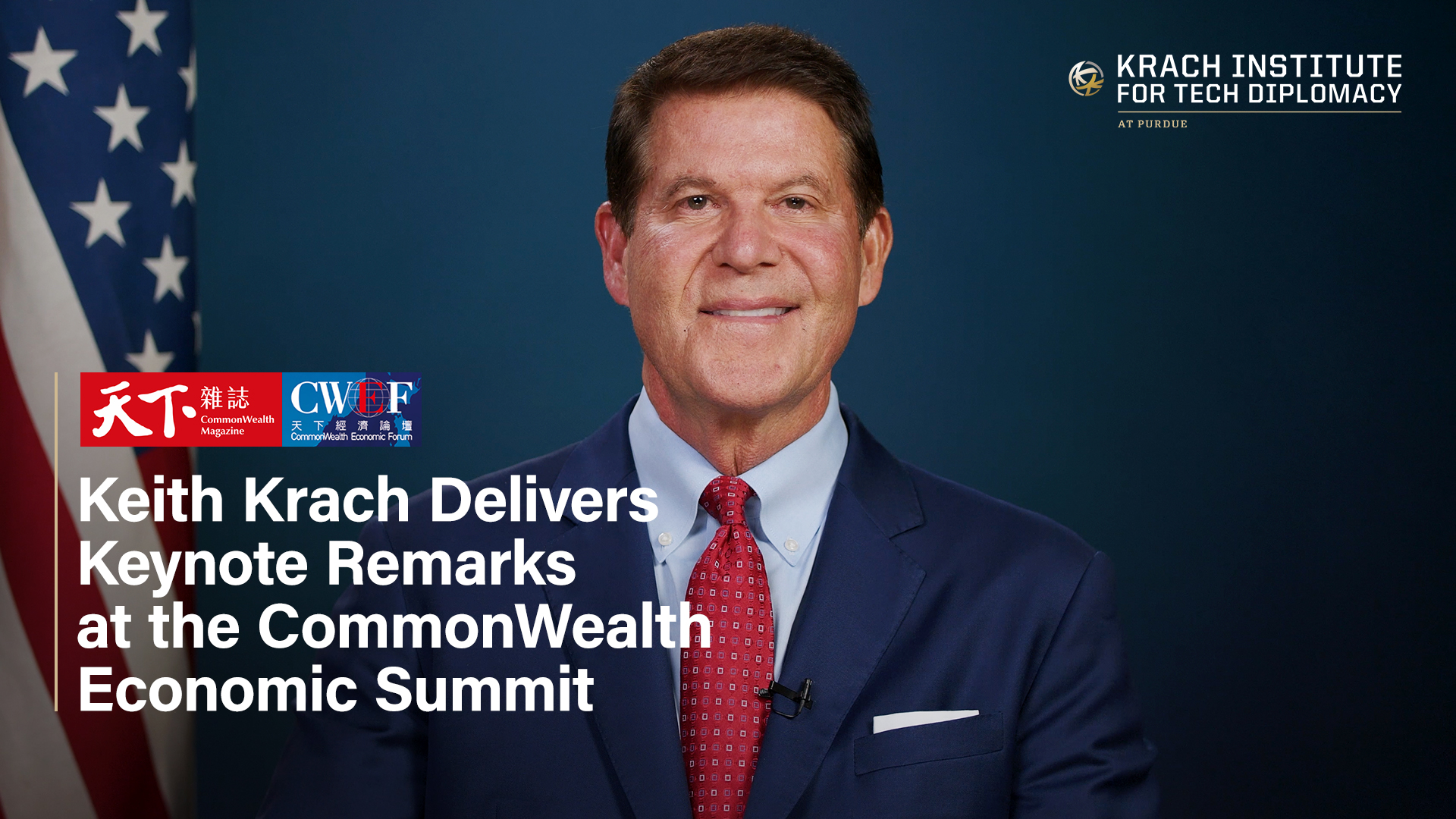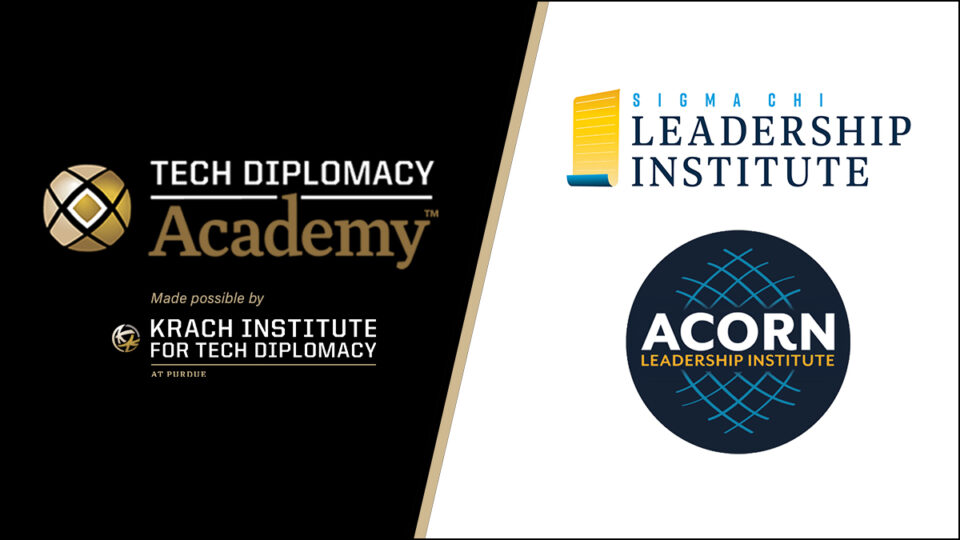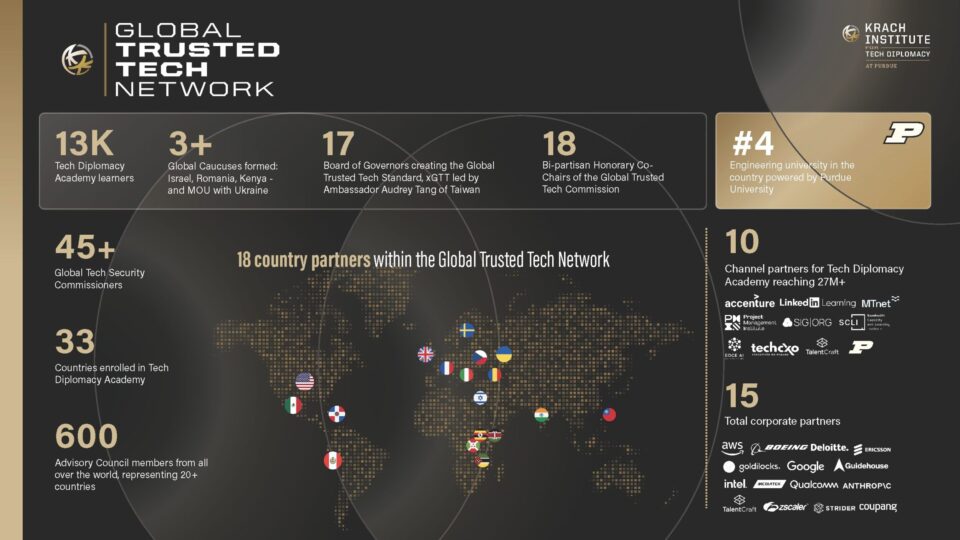Source: CommonWealth Magazine
Speaking at the 2025 CommonWealth Economic Forum, Keith Krach highlighted his pivotal role during the Trump administration in redefining U.S.-Taiwan relations through trusted technology and trade. From the inclusion of Taiwan in the Clean Network to TSMC’s $65 billion investment in the U.S., his leadership demonstrated how strategic alliances can secure freedom and foster innovation. As the world readies for a second Trump administration, Krach proposes deeper U.S.-Taiwan collaboration and a bold path forward for security, and democratic resilience. Below are the key highlights of his remarks.
Technology as a Battlefield of Values
Technology is reshaping every aspect of our lives at an unprecedented pace.
It is no longer just a tool; it has become the battlefield where the values of freedom and authoritarianism collide. Emerging technologies such as AI, semiconductors, quantum computing, and hypersonics are defining the future. The critical question is whether these innovations will shape the world for good or ill.
Authoritarian regimes understand the stakes. Vladimir Putin famously stated, “Whoever becomes the leader in this sphere will become the ruler of the world.” Similarly, Xi Jinping describes big data as “the new oil,” a source of immense power and opportunity. There is no doubt that whoever dominates advanced technologies will dictate the future. Those of us in the free world cannot afford to remain neutral in this competition.
This competition is not theoretical; it is real, intense, and unforgiving. The stakes are nothing less than the survival of freedom itself. Tomorrow’s technology must be “trusted technology” because trust is the foundation of everything we hold dear.
The Power of Trust
Trust is the most important word in any language. It is the currency of every relationship, personal or professional. Every businessperson understands this principle. To build a successful company, people must trust you, your products, and your processes.
When I was CEO of DocuSign, I reminded our team, “We are not in the software business; we are in the trust business.” We dealt with people’s most important documents—the ones they sign. People do business with those they trust. Nations build alliances based on trust. Trust is how friendships are forged, deals are made, and peace is preserved. Without trust, there is no collaboration, no progress, and no security.
In this era of unprecedented technological and geopolitical change, trust is not just important—it is essential.
A Case Study: The Clean Network
As Under Secretary of State during the first Trump administration, I had the privilege of running U.S. economic diplomacy. One urgent mission was to defeat the Chinese Communist Party’s (CCP) master plan to control 5G communications. At the time, their momentum seemed unstoppable, and failure appeared inevitable. If authoritarian regimes controlled 5G, they could access personal data and manipulate everything from social media platforms to utility grids to autonomous vehicles.
Previous U.S. efforts to counter this had failed, and both sides of the aisle were sounding alarms. Our breakthrough came when we asked our foreign counterparts about their relationship with China. They often said, “They are an important trading partner,” but then whispered, “We don’t trust them.” That was the moment we developed the Trust Doctrine, a global strategy based on the principle that trust is the foundation of peaceful and prosperous relationships.
The Trust Doctrine emphasizes democratic values such as integrity, accountability, transparency, and reciprocity, alongside respect for the rule of law, human rights, and environmental stewardship. These principles form the bedrock of trust. In contrast, the CCP exploits the absence of trust with what I call the “Four Cs Domination Doctrine”: coercion, concealment, co-option, and control.
By placing trust at the heart of our strategy, we launched the Clean Network Alliance of Democracies. In less than a year, we united 60 countries representing two-thirds of global GDP, along with 200 telecom companies and dozens of leading firms. Together, we dismantled the CCP’s domination plan by leveraging their greatest weakness: a lack of trust. This initiative demonstrated the power of unity and solidarity, turning democratic principles into tools to counter authoritarian regimes.
Trust and the U.S.-Taiwan Relationship
Trust is also the cornerstone of the enduring U.S.-Taiwan friendship. We are kindred spirits—tough, honest, hardworking, and fiercely independent. Both nations share an unshakable belief that there is no prosperity without freedom.
In 2020, trust brought me to Taiwan and inspired me to lead initiatives that have transformed our relationship. Trust brought Taiwan into the Clean Network. Trust facilitated TSMC’s $65 billion investment in the United States. Trust also laid the foundation for the Economic Prosperity Partnership and the Science and Technology Agreement.
This partnership is only beginning. By expanding our collaboration and solidifying shared values, we can secure freedom for future generations.
Trusted Trade in a Second Trump Administration
Looking ahead, fair and reciprocal trade will be a top priority in a second Trump administration. For decades, unfair trade practices have harmed American workers and businesses, creating deficits, slowing growth, and suppressing wages. A redefined approach will revitalize U.S. manufacturing, create good-paying jobs, secure critical supply chains, and negotiate trade deals based on fairness and reciprocity.
Trade will no longer be merely transactional; it will be transformational. Trusted trade and investment will ensure that we are not just exchanging goods but creating opportunities, forging alliances, and reinforcing the pillars of freedom and democracy.
The TSMC Case Study: A Model for Trusted Trade
TSMC’s bold $65 billion investment in three U.S. fabs is a perfect case study. Critics feared it would hollow out Taiwan’s industry, but the opposite happened. The move strengthened Taiwan’s global brand, secured the semiconductor supply chain, and attracted world-class talent.
TSMC’s success exemplifies how trusted trade creates mutual wins. Partners like NVIDIA, Apple, and Qualcomm benefit from real-time collaboration and support. Suppliers and Taiwanese companies gain new market opportunities. Consumers win as chips power productivity and raise living standards.
From another perspective, the U.S. wins by revitalizing manufacturing, creating jobs, and securing supply chains. Allies like Germany and Japan benefit as well, paving the way for similar investments. For Taiwan, the initiative achieves a triple win: innovation, prosperity, and security.
The Broader Implications of Trusted Trade
TSMC’s U.S. investment highlights the power of the network effect, where each new participant amplifies the collective strength of democracies. Every Taiwanese company that expands internationally enhances Taiwan’s global presence and fortifies its national interests.
This is more than a business strategy; it is a story of freedom. Taiwan’s trusted technology serves as a shield against tyranny and a force that actively enhances its freedom while inspiring nations worldwide.
About the author:
Keith Krach has served as the Under Secretary of State for Economic Growth, Energy, and the Environment during the first Trump administration, where he initiated the Clean Network Alliance of Democracies to secure global 5G networks. A co-founder of Ariba and former CEO of DocuSign, Krach played a pivotal role in shaping digital transactions. Krach is currently the chair of the Krach Institute for Tech Diplomacy at Purdue University.


